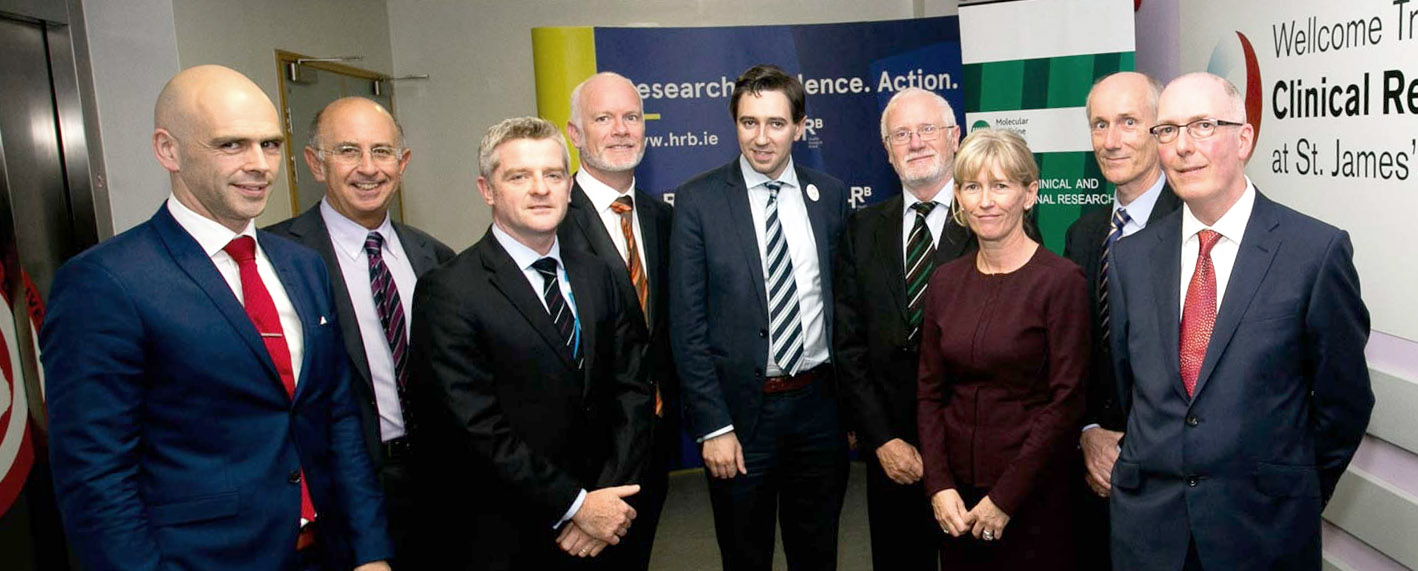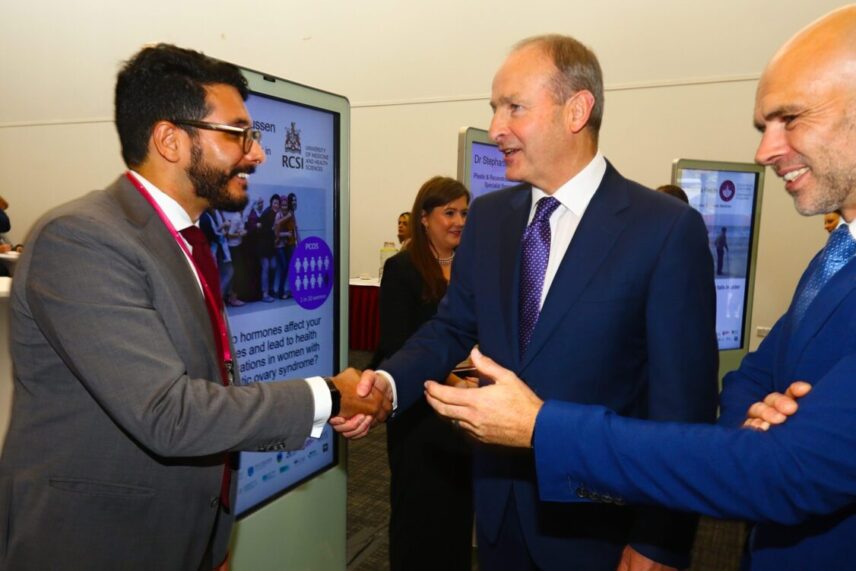Governance
The ICAT Executive Team
The Irish Clinical Academic Training (ICAT) Programme is managed by an Executive Team composed of Directors from each partner university, comprising one Principal Director, two Deputy Directors, Co-Directors, Associate Directors, and Programme Managers.
Individual ICAT Directors represent their university in the Executive Team and represent the ICAT Programme within their university. ICAT Directors provide the link between the ICAT partner universities, the ICAT Executive Team and the ICAT Fellows. ICAT Programme Managers support the ICAT Directors in the management and implementation of the ICAT Programme and in communications with the stakeholders.
The team meet weekly to oversee ICAT Programme activities.
Programme Management
Several members of the ICAT Executive Team form a core group that lead the management of the ICAT Programme, including financial oversight and long-term strategy.
These members are the ICAT Director, the Deputy Director in the Republic of Ireland, the Deputy Director in Northern Ireland (these positions rotate every two years), Principal Investigators of the ICAT grants, and the Programme Managers.

ICAT-1 Programme
The ICAT Programme was funded in 2016, with core funding from Wellcome and the Health Research board, supported by co-funding from the HSE National Doctors Training and Planning, Public Health Agency HSC R&D Division, Northern Ireland Medical and Dental Training Agency, and the six partner universities.
ICAT-1 supported the appointment of five cohorts of ICAT Fellows, in 2017, 2018, 2019, 2020 and 2021.
ICAT-2 Programme
The second iteration of ICAT-2 was funded in 2022, with core funding from the Health Research board, supported by co-funding from the HSE National Doctors Training and Planning, Public Health Agency HSC R&D Division, Department of Agriculture, Food and the Marine, the College of Anaesthesiologists of Ireland, Northern Ireland Medical and Dental Training Agency, and the six partner universities.
ICAT-2 will support the appointment of five cohorts of ICAT Fellows, in 2022, 2023, 2024, 2025 and 2026.

Steering Committee
The Steering Committee consists of an appointee from each partner university, representatives of the Forum of Irish Postgraduate Training Bodies, HSE National Doctors Training and Planning (HSE-NDTP), the Health and Social Care R&D Division (HSC R&D), Northern Ireland Medical and Dental Training Agency (NIMDTA), the College of Anaesthesiologists of Ireland (CAI) and the Department of Food, Agriculture and the Marine (DAFM). This committee meets biannually to oversee programme implementation. The broad range of members on this team ensures smooth integration and interaction between the research and clinical requirements of training with the overarching focus on the needs of the fellow.
Independent Advisory Board
The ICAT Independent Advisory Board (IAB) comprises international academics and senior Irish academics. The IAB meets yearly to advise on overall programme aims and achievements. They participate in the review of programme applications, fellowship interviews and the peer-review of PhD research proposals. IAB members attend the annual ICAT Retreats where they meet with fellows in a supportive academic setting, sharing their expertise and experience.
Alumni Committee
The mission of the ICAT Alumni Committee is to support alumni of the Irish Clinical Academic Training (ICAT) Programme, and to support the ICAT Executive Team in advocating for long-term academic career structures for clinicians in the Republic of Ireland and Northern Ireland. The committee is led by ICAT Alumni, with support from the ICAT Executive team and partner universities.
Equality, Diversity and Inclusion Working Group
The mission of the ICAT Equality Diversity and Inclusion Working Group (EDIG) is to promote and advance the culture of equality, diversity and inclusion for all clinical academics within the Irish Clinical Academic Training (ICAT) Programme and across the postgraduate medical/dental/veterinary training bodies, professional bodies and academic institutions throughout the Republic of Ireland and Northern Ireland. The EDIG meets twice yearly and its member represent a number of organisations within the ICAT network, as well as independent international members.
The ICAT EDI Policy can be viewed here.